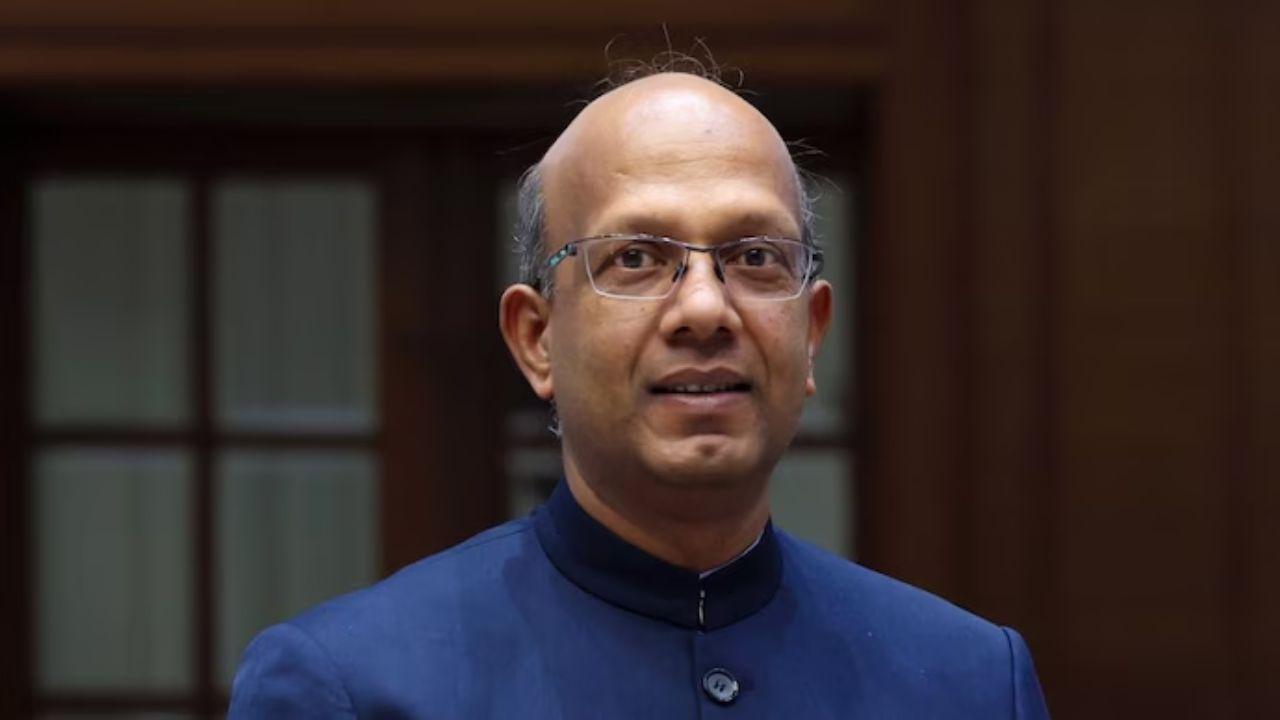
Post by : Mariam Al-Faris
Photo:X/@vkumar1969
India has once again defended its right to buy crude oil from any source that offers the best price, saying that the nation’s energy needs cannot be compromised by outside political pressure. At the heart of the issue is New Delhi’s decision to purchase large quantities of discounted Russian oil, which has drawn sharp criticism from the United States and triggered a new round of tariff hikes on Indian exports.
Speaking in a recent interview, India’s ambassador in Moscow explained that the government’s central objective is to guarantee energy security for its 1.4 billion citizens. He stressed that oil companies in India make commercial decisions based on price, stability, and supply conditions. “We will continue buying from wherever we get the best deal. That is what the current situation demands,” he said firmly, emphasizing that national interest comes before foreign criticism.
U.S. Pressure and Tariff Measures
This statement comes against the backdrop of a trade dispute between New Delhi and Washington. The American administration has accused India of indirectly funding Russia’s war in Ukraine by purchasing its oil. In response, it announced new tariff measures that sharply increase the cost of Indian goods entering the U.S. market.
Duties on several categories of Indian exports now stand at 50 percent, with an additional 25 percent specifically linked to India’s continued imports of Russian crude. Washington’s move has been described by Indian officials as “unfair, unreasonable, and unjustified.”
For New Delhi, this is not just about tariffs — it is about sovereignty. Policymakers argue that India cannot allow its trade decisions to be dictated by another country’s geopolitical interests. Energy, they stress, is not a political luxury but a lifeline for the economy.
India’s Energy Security Needs
India is the world’s third-largest consumer of oil, after the United States and China. With a massive population and a growing economy, its daily energy demand is enormous. Domestic production covers only a fraction of this need, forcing India to import around 85 percent of its crude oil requirements.
In recent years, Russia has emerged as one of India’s top suppliers, often offering crude at a discounted rate compared to traditional Middle Eastern exporters. For India, this has been crucial in managing inflation, keeping fuel prices affordable, and ensuring industries remain competitive. Without access to cheaper Russian crude, energy costs could soar, directly affecting millions of households and businesses.
Officials argue that their energy procurement strategy is guided by practical concerns: ensuring uninterrupted supplies, diversifying sources to reduce dependence, and finding deals that are financially sustainable. Russia has been a reliable partner in this regard, they say, and cutting off that channel would hurt India more than it would hurt Moscow.
Double Standards in Global Trade
Indian leaders have also highlighted what they see as hypocrisy in Washington’s stance. While the U.S. criticizes India for purchasing Russian crude, several European countries continue to import Russian gas and refined products. Even American companies maintain certain commercial ties with Russia.
External Affairs Minister S. Jaishankar recently voiced this frustration openly. Responding to a question about U.S. criticism, he remarked, “It’s funny to hear people from a pro-business administration accuse others of doing business. If you don’t like what we buy, then don’t buy from us. But don’t expect us to stop buying when others continue to do the same.”
This blunt statement reflects India’s growing confidence in asserting its independent foreign policy. Rather than bowing to pressure, New Delhi is making it clear that it will act according to its own interests and principles.
Economic Impact of U.S. Tariffs
The tariff increase is expected to hurt sectors like textiles, pharmaceuticals, chemicals, and manufactured goods that rely heavily on U.S. markets. Indian exporters fear reduced competitiveness, while some American businesses that depend on affordable imports from India may also feel the pinch.
Analysts warn that the dispute could strain the broader economic relationship between the two countries. Bilateral trade has grown in recent years, making the U.S. one of India’s largest partners. But if tariffs remain in place, India may redirect its exports to other regions such as Southeast Asia, Africa, or Latin America.
At the same time, New Delhi could deepen its economic cooperation with Russia and other energy-rich nations, further altering the global trade map.
India’s Diplomatic Balancing Act
The controversy over oil imports is not just an economic matter; it is also a test of India’s diplomatic strategy. Since the outbreak of the Ukraine conflict in 2022, India has avoided taking sides, calling instead for peace and dialogue. While Western nations sought to isolate Russia, India chose to keep channels open, balancing its partnerships with both Moscow and Washington.
This balancing act has not been easy. On one side, India shares deep strategic and defense ties with the United States. On the other, Russia remains a key supplier of energy and military equipment. Navigating this triangle requires careful diplomacy — and India has signaled that it will not allow external pressures to disrupt its core interests.
Looking Ahead
The road ahead may see further disputes if the U.S. continues to tighten trade restrictions. Indian officials have already said that they will respond with measures designed to protect national interests, though they have not specified what those measures might be.
For now, New Delhi’s stance remains clear: the welfare of 1.4 billion people depends on affordable energy, and that cannot be sacrificed for the sake of political alignments. In the words of the ambassador, “Our cooperation with Russia, as with several other countries, has brought stability to the global oil market. That stability benefits everyone, not just India.”
The clash over oil imports and tariffs shows how economic needs, energy security, and geopolitics are deeply connected. For India, this is more than a trade issue — it is about independence, sovereignty, and the ability to make choices that best serve its people.
As the debate continues, one thing is clear: India will not easily bend to external pressure. Instead, it will pursue a path that balances global diplomacy with domestic priorities, proving once again that in today’s world, economic strength and political will go hand in hand.










Kazakhstan Boosts Oil Supply as Prices Tumble Amid U.S. Storm
Oil prices fell slightly as Kazakhstan resumed production while adverse weather impacted U.S. Gulf C

Madras High Court Halts Jana Nayagan Censor Clearance
The Madras High Court suspends the earlier order allowing censorship clearance for Jana Nayagan, del

MV Trisha Kerstin 3 Incident: 316 Rescued, Ongoing Search Efforts
In a tragic event near Jolo, the MV Trisha Kerstin 3 faced an accident with 316 passengers rescued s

Public Fury Erupts Following Fatal Shootings by ICE Agents
Nationwide protests ensue after two U.S. citizens are killed during ICE operations, prompting celebr

Masdar City Free Zone Crowned Fastest-Growing in the UAE
In 2025, Masdar City Free Zone celebrates three awards, highlighting remarkable growth and robust su

Musetti Triumphs Over Fritz, Sets Up Match Against Djokovic
Lorenzo Musetti outplays Taylor Fritz, moving on to face Djokovic in the quarterfinals with a comman